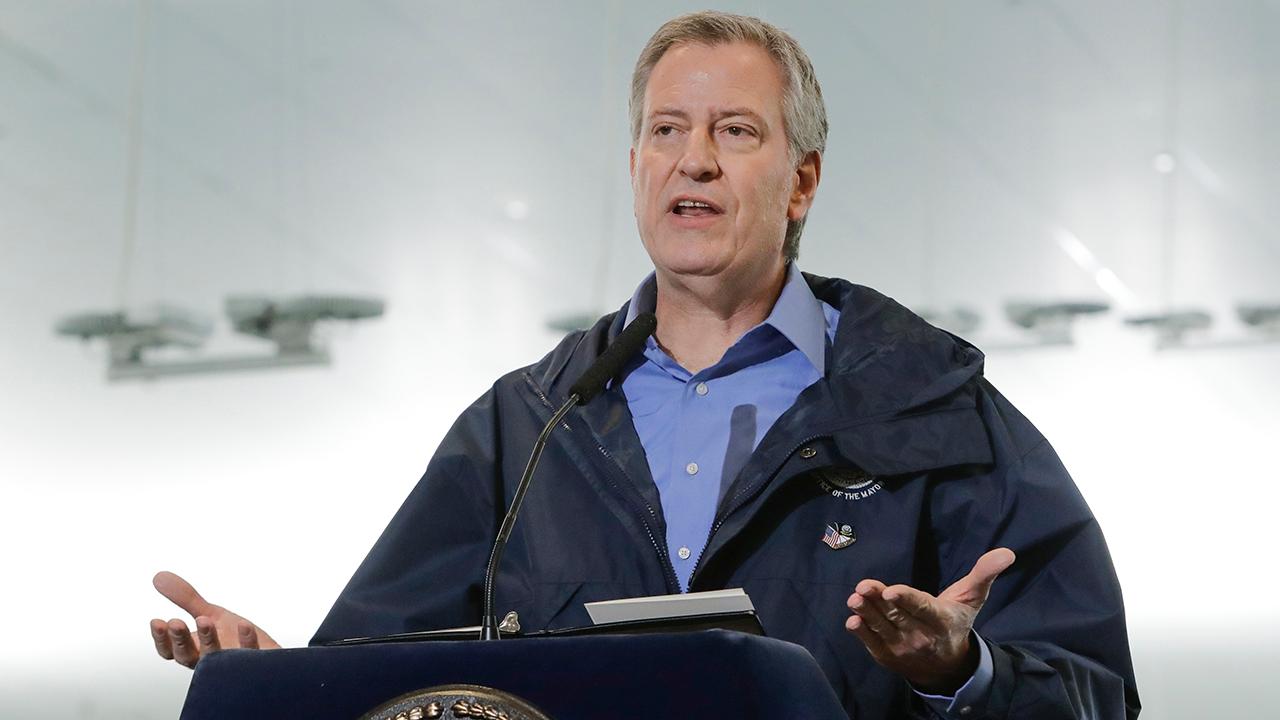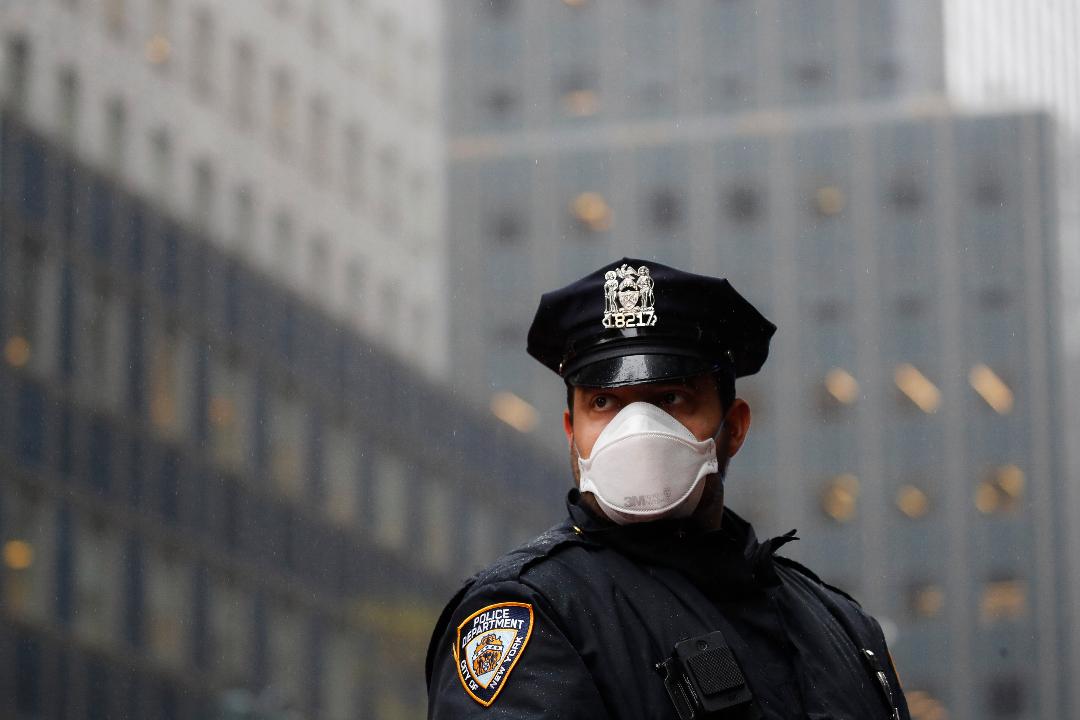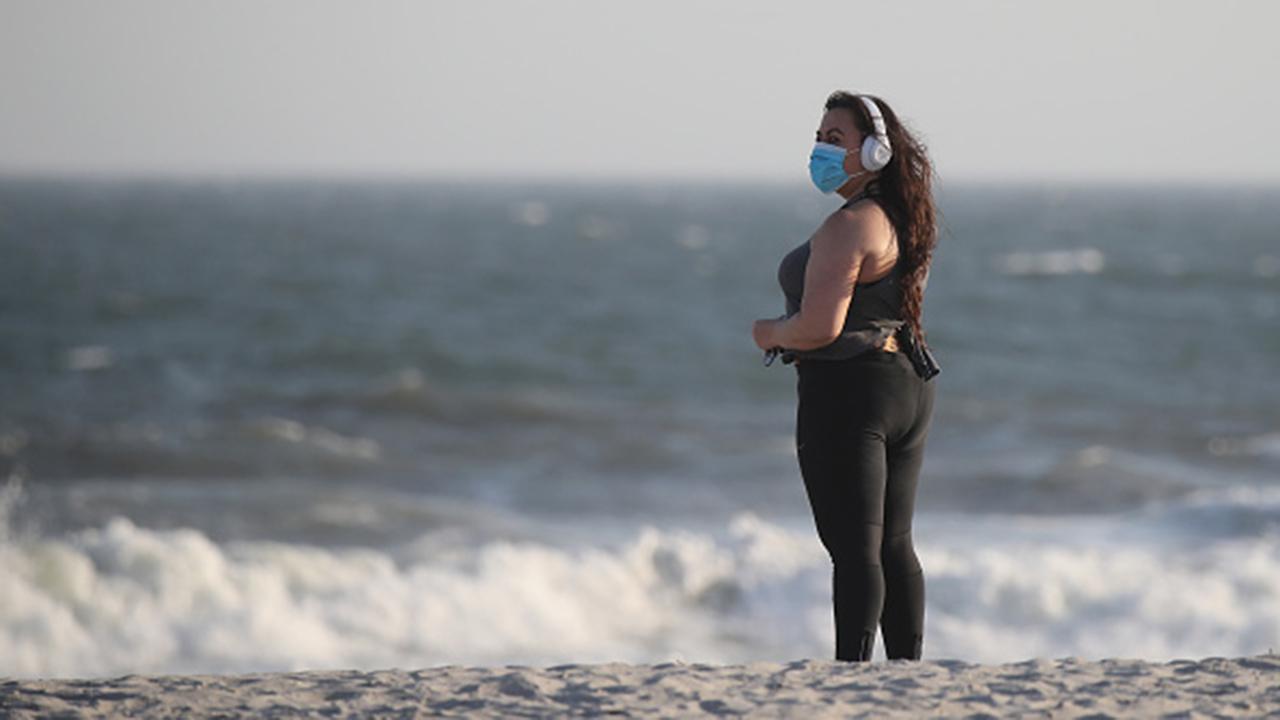NYC Mayor de Blasio burns Memorial Day beach economy with police threats
Mayor warns police increasing patrols; bans swimming, large groups at closed beaches
Get all the latest news on coronavirus and more delivered daily to your inbox. Sign up here.
Memorial Day weekend in New York City won’t look quite the same as years past, as the novel coronavirus pandemic has caused beaches to be closed for large gatherings, sports, celebrating and even swimming.
Mayor Bill De Blasio said during a Friday press conference the Parks Department will be the first line of enforcement, with the NYPD around to step in when necessary.
"Anyone who's unhappy about that, anyone who thinks it's unfair, the buck stops with me," he said, as he laid out the rules for which activities would and would not be allowed on beaches.
De Blasio said more than 150 Parks Department personnel will be "out there in force to get the word out" at city beaches. And the city will also be adding to the NYPD's usual summer detail, with hundreds of officers on patrol.
"If things are going well, they are going to be in the background. If there are gatherings, if there are people trying to go into the water, Parks is gonna take the lead, but if they need support from the NYPD, they will have it."
For stir-crazy New Yorkers, it means they’ll have to find another option or leave the city altogether. But for some small business owners, such as those who run the shops, amusements and restaurants along Brooklyn’s famous Coney Island Beach and Boardwalk, it means their livelihood is at stake with a significant loss of beachgoers.
Alexandra Silversmith, executive director of the Alliance for Coney Island, said the small businesses located on the Brooklyn island are bracing for a 75 percent drop in sales this Memorial Day weekend compared to previous years.
FLORIDA'S GRAYTON BEACH NO. 1 IN TOP-10 US LIST
“Something that people don't realize actually is a lot of these are family-owned – really are mom and pop in that sense and are intergenerational businesses, so there's a lot of history there,” Silversmith told FOX Business. “Generally this is their bread and butter, so this is what they have sort of built their lives around.”
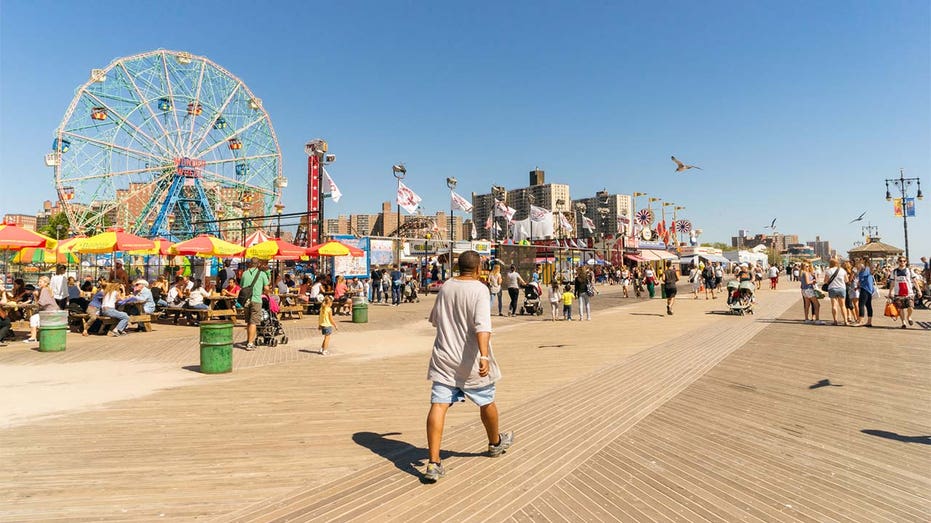
New York, USA - September 23, 2015: People walking long Riegelmann Boardwalk (iStock)
Silversmith said she expects to see some locals still heading to the beach to walk around the boardwalk or exercise, which is allowed per de Blasio’s ruling on the issue, but she doesn’t anticipate out-of-towners visiting.
“It's hard to tell, but I think especially with the message that the beaches are closed and the amusements [are] not open, I don't think most people would take a trip," she said.
FOR BEACH TOWNS, CORONAVIRUS MEANS A MAKE OR BREAK SUMMER STARTS NOW
Approximately 100,000 people would typically come to Coney Island on a day with nice weather, Silversmith estimated, with roughly 7 million visiting each summer. But some Coney Island business owners are still working to wrap their heads around what this very different summer will look like, she said.
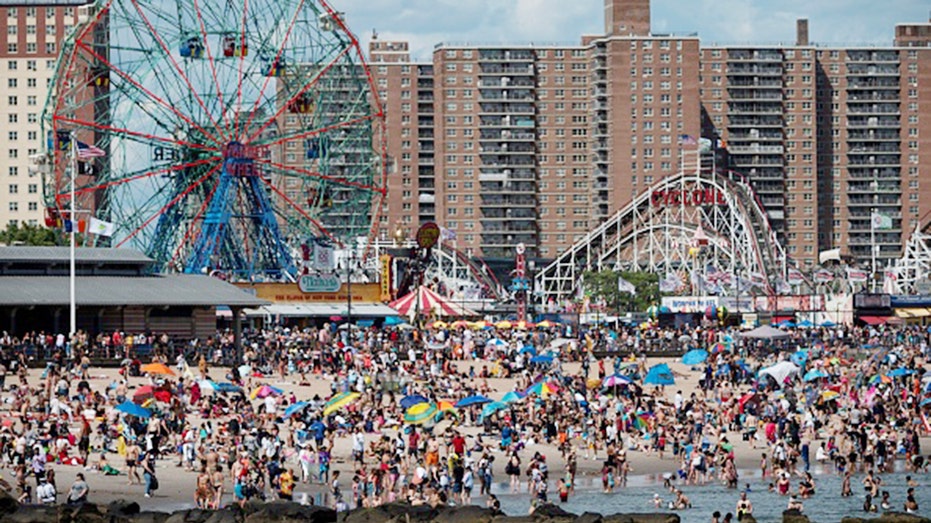
People enjoy the sunshine at the beach in Coney Island on June 22, 2019 in New York City. (JOHANNES EISELE/AFP via Getty Images)
CORONAVIRUS PANDEMIC LIMITS LUXURY HOTELS OPEN FOR MEMORIAL DAY
Denos Vourderis, a third-generation owner of Deno's Wonder Wheel amusement park, said the park is still closed, but also sells food in a boardwalk-facing concessions stand, which has been open for carry-out orders. 2020 marks the amusement park's hundredth year.
Vourderis predicts there will be an 80 percent decrease in the stand's food sales on Memorial Day weekend, which he attributes to the loss of foot traffic the boardwalk would usually see from beachgoers.
"We're not expecting the big day of sales where we would be selling hundreds of pies. If I sell 50 pies or 60 pies on any one of the days, I would be surprised," Vourderis, 34, said. "People feel like when the beaches are closed, then Coney Island is closed."
Vourderis said he still expects people to flock to Coney Island for the holiday weekend, and stressed that "there's still life on the boardwalk."
"Even though you can't camp out and you're not allowed to technically sit on the beach all day, businesses are still open and they still need some help here."
GET FOX BUSINESS ON THE GO BY CLICKING HERE
And the area is populated by residents who are already largely on edge. With a median household income of $27,345, according to The New York Times, Coney Islanders rely on their jobs, which are, in many cases, hanging on by a thread, if not already lost.
As Maya Haddad Miller, who co-owns four Brooklyn Beach Shops, explained: "The beach is more likely to open before I'm allowed to open."
For Haddad Miller, COVID-19-prompted restrictions will cause the chain of four stores that line the boardwalk’s amusement district to stay closed for what is normally their second-strongest weekend of the year.
“The few days before Memorial Day weekend, we are geared up with staff, we would stay until midnight, sometimes even later, just to prep the store for the weekend,” she told FOX Business. "Instead, I am home navigating my Payroll Protection Program loan forgiveness application. It's surreal.”
Haddad Miller said the stores, which closed their doors on March 16, rely on a handful of months – mainly the summer ones – to make a profit.
“We just have zero income coming in. I’m down 100 percent and I'm running at a negative,” the 38-year-old Brooklyn resident said. She added: “I can’t really work on this in the winter to recoup [the money]."
De Blasio, who said Friday that Coney Island was his favorite beach in the city, announced late last week the city was “just not ready” to reopen the beaches, saying it wasn’t safe. As a result, members from New York Police and Parks Departments would be “increasing patrols.”
“It takes traveling to the beach, which means there goes the notion of only keeping to essential travel. That’s something that we’re just not ready for.”
Meanwhile, beaches throughout the state would be open, but with certain limitations, such as those limiting capacity, in place.
De Blasio doubled down on the decision on Monday, when he told reporters that anyone who tried to go for a swim would “be taken right out of the water.”
DE BLASIO FLOATS FENCING TO KEEP NEW YORKERS OFF BEACHES
And fences would be added to the enforcement repertoire at certain entry points. The fencing would be in place, but would not be used unless needed, a City Hall spokesperson said.
On Friday, de Blasio reiterated that no swimming will be allowed, and stressed that there would not be lifeguards on duty to patrol the beaches.
“The NYPD and the Parks Department will be taking any number of measures. There’ll be plenty of personnel out,” he said during a press conference. “We’re going to make sure people understand the ground rules and we’re going to enforce them. And if there are too many people at any point, any place … we will keep both spreading people out, but if we have to send people off the beach, off the boardwalk, if we have to reduce the number of people, we’ll do that.”
Police Commissioner Dermot Shea acknowledged that beaches are opening in “a little different manner this year,” but said police will be out keeping watch.
“Members of the New York City Police Department, whether it’s in Orchard Beach, it’s in Coney Island … are going to be out there to make sure people can enjoy the beach, enjoy it safely and just keep the peace.”
CLICK HERE TO READ MORE ON FOX BUSINESS
In the meantime, government officials in Nassau and Suffolk Counties, which represent different parts of Long Island, are preparing for New York City residents to flock to their beaches, instead.
In turn, officials from both counties had rolled out their own plans that call for either restricting beach access to only county residents or limiting capacity and giving locals priority.




















